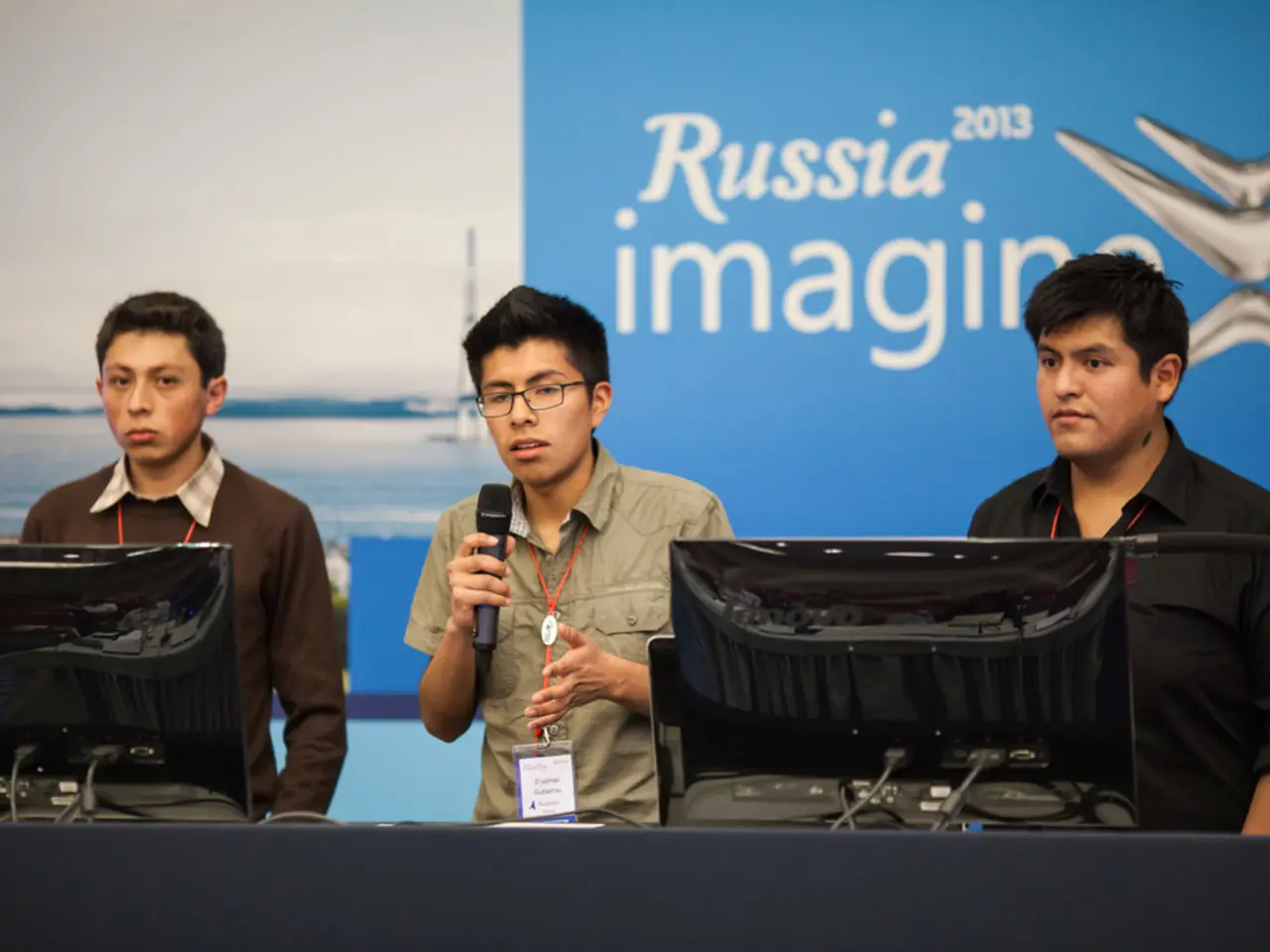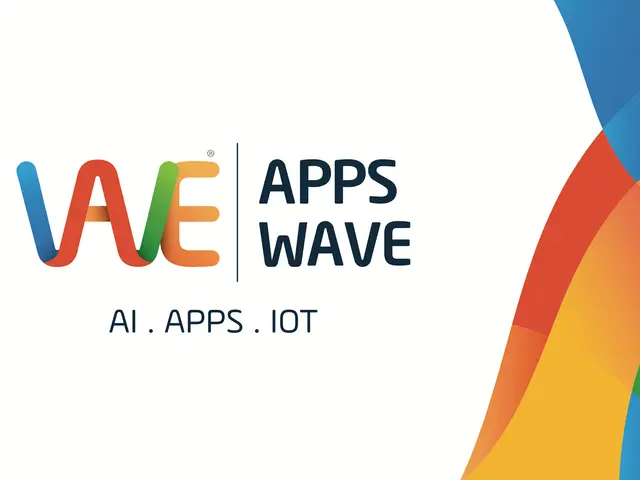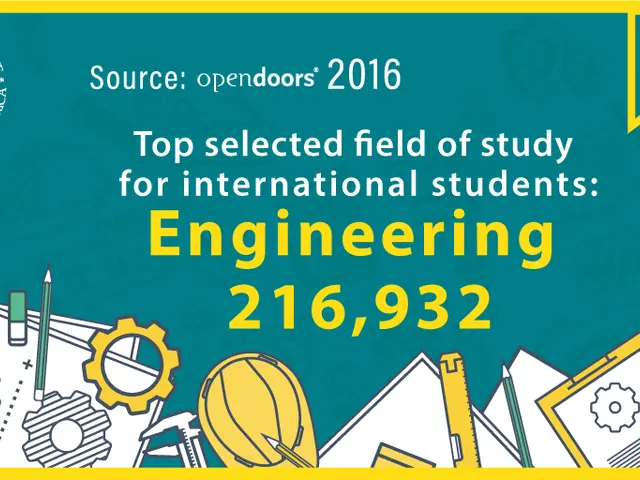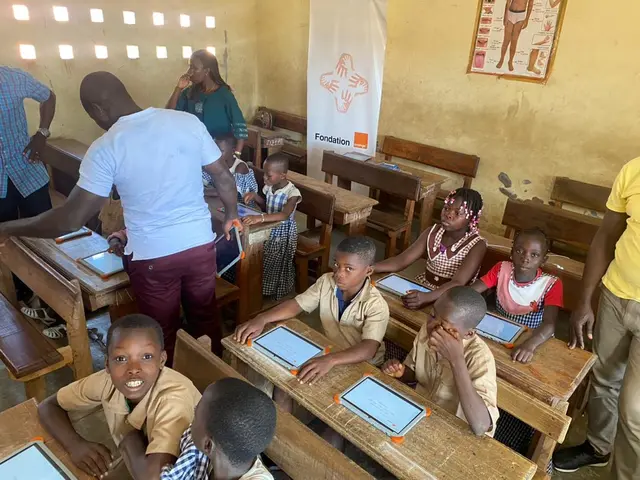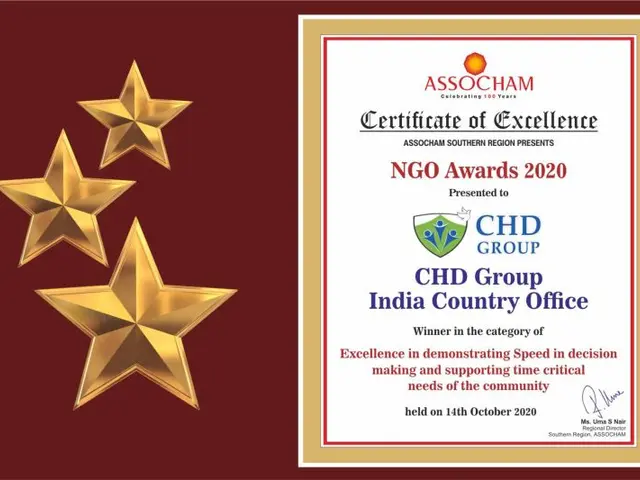Shaping Education for the Economy's Needs: The Role of Tomsk in Russia's Impending Educational Transformations
Tomsk State Pedagogical University Leads the Way in Modernising Russian Education
The Tomsk State Pedagogical University (TSPU) plays a significant role in the development of current Russian education strategies, particularly in areas such as teacher education, digitalisation, internationalisation, and regional education development. Here is an overview of the key aspects:
Innovative Teacher Training
As one of Russia's leading pedagogical universities, TSPU is actively involved in the implementation of the 2020 introduced National Teacher Development Strategy ("The Teacher of the Future") and the Modernisation of Teacher Education. The university implements innovative teaching and learning methods, conducts research into new pedagogical approaches, and trains teachers who meet the demands of a modern, digital education sector.
Digitalisation of Education
The Russian government places great importance on the Digitalisation of Education („Цифровая образовательная среда“). TSPU is a pioneer in this area: it develops and tests digital teaching and learning formats, promotes the use of e-learning platforms, and prepares future teachers for teaching in the digital age. The university works closely with the Ministry of Education and Science to test national education standards and digital curriculum.
Internationalisation and Cooperation
TSPU maintains international partnerships with universities and education organisations worldwide. It participates in EU-funded projects, exchange programmes, and offers English-taught degree programmes. Through these activities, the university contributes to the Internationalisation of Russian Higher Education and fosters the exchange of best practices.
Regional and Social Education
As the largest pedagogical university in the Asian part of Russia, TSPU plays a crucial role in regional education development. It supports schools and educational institutions in Siberia in implementing new curricula, teacher professional development, and the promotion of inclusion and MINT education (Mathematics, Informatics, Natural Sciences, Technology). This contributes to the alignment of education standards between regions.
Conclusion
The Tomsk State Pedagogical University is a driving force behind the Modernisation and Digitalisation of Russian education. It serves as a bridge between national education strategies and local practice, promotes internationalisation, and prepares teachers for the challenges of the 21st century. Thus, it is a central element of the current Russian education landscape.
Sources: Current information from official TSPU websites, reports from the Russian Ministry of Education and Science, and publications on education policy and reforms in Russia (up to 2023). For more detailed, specific analyses, it is recommended to consult the current research literature or a direct inquiry at the university.
- The profession of educator is timeless. Its essence is the transmission of experience, nurturing, and human interaction. Even the most perfect artificial intelligence cannot replace a trusting conversation, sadness in a child's eyes, inspiring them with their own example, and giving heartfelt advice. The educator.
- The university is preparing future teachers to use AI in their work, including gamification, visualisation, and digital safety. This discipline is taught across almost all programmes.
- Students emphasise the need for a foreign language, as a healthy, long-term life can also be achieved by using practices or technologies created in other countries. However, this is impossible without language knowledge.
- The university is looking at the content of education in preparing future teachers, aiming to form broad interdisciplinary professional thinking.
- Over 600 students have been admitted on a budget basis at Tomsk Pedagogical University for the current academic year, with students from 56 regions of Russia and 18 countries admitted.
- The university is preparing students who can see themselves in production, industry, economics, and the future school, understanding that the labour market and its division system is much more dynamic than it was a few years ago.
- The content of education needs to be updated to include digital literacy, cybersecurity, artificial intelligence, and project-based activities.
- The university understands that education transformation is impossible without modern technologies, including artificial intelligence.
- A personalised, individual approach is necessary in education, addressing the specific needs and qualifications of students at each stage of their education.
- The educator today helps people grow, and technology only changes their tools, but it will never replace the ultimate goal of their work.
- Some students are interested in medicine but chose a pedagogical university because they believe that solely relying on pharmacology won't achieve a healthy and long-term life. They understand the importance of a healthy lifestyle, sports, and physical education.
- The higher education system is changing in the pedagogical university, with a focus on forming a professional community of teachers and preparing them to carry knowledge that is valuable for professional activities.
- The modern educator is a navigator in the world of information, a motivator who ignites a passion for learning, a leader with high emotional intelligence, an innovator who isn't afraid to experiment in their work, including with technologies.
- The university is working with the Higher School of Economics in a mirror laboratory on using AI in education, conducting joint research, and sharing their findings with the professional community.
- The university acknowledges the tutoring experience of some students but emphasises that it is only relevant for a short time, and if they want to transform it into professional activities and qualifications, the university is the place to acquire this.
Read also:
- List of the Top 10 Billionaire Gamers Globally in 2025
- UK-based software, MEMORI, earns distinction as the nation's first certified software-as-a-medical device, offering real-time infection prediction capabilities.
- Skincare is experiencing significant transformations with the rise of biotech ingredients - learn about their impact on the beauty industry.
- Artificial Intelligence Threat: Examining Pop Culture's Anxiety and Its Basis for Concern
